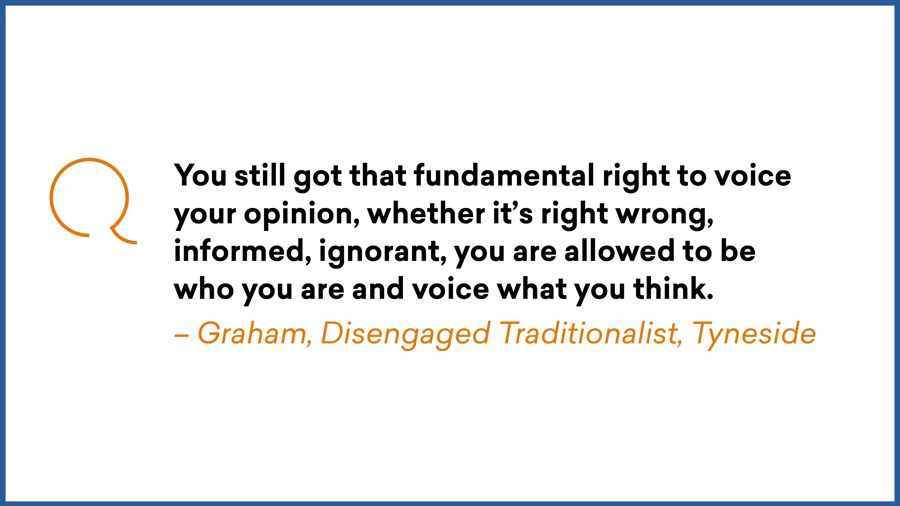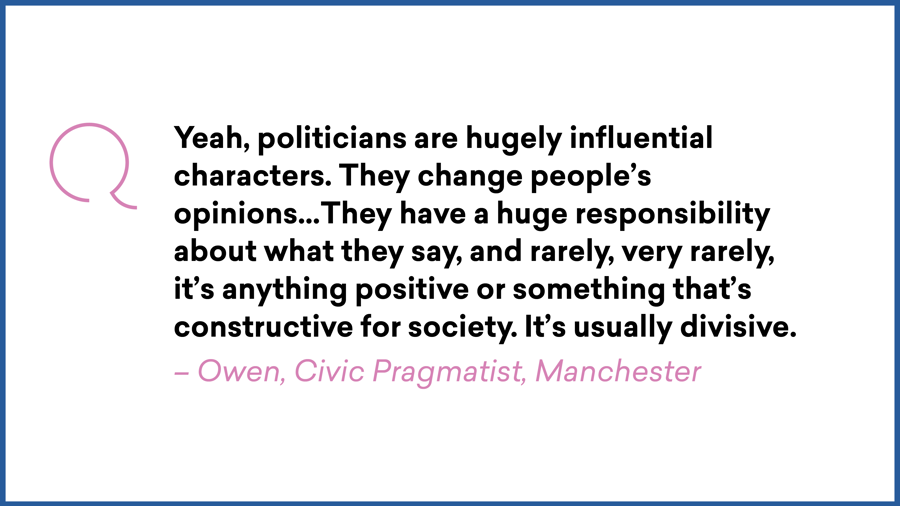
Most people would agree cookies make life better. For us, they help us improve our website. If you don’t like cookies, that’s okay – you can let us know by clicking the manage cookies’ button. Read more.
Manage cookies
These cookies allow us to count visits and understand what people are reading on our website. The data is collected in a way that does not directly identify anyone or infringe on your privacy.

Can we take the heat out of culture wars? After conversations with people from across Britain, More in Common UK has released a new report - Dousing the Flames: How leaders can better navigate cultural change in 2020s Britain.
On many of the cultural issues of the day, from football players taking a knee against racism, to pictures of the Queen being removed from college halls, the discourse within the media tells a story of acrimony and conflict - the 'culture wars'.
But More in Common has found a different story. Rather than splitting into those who embrace and those who reject change, most people believe that cultural change is a central part of the British story, and something that they embrace. We also found that there is a particular ‘British way’ of doing change, that allows space for people to ask questions, to voice their opinions, and to learn from their mistakes.
People told us in focus groups conversations that they are deeply concerned that the way politicians and campaigners are inflaming culture wars is undermining that British approach to change, playing into the hands of cultural arsonists on the right and left, and building resentment over, rather than acceptance of, change.
In order to better meet the public’s expectations Britain’s leaders need to learn from the past. In Dousing the Flames, we highlight gay rights, gender equality and climate action as examples where leaders from politics and civil society have stewarded change in a way that has changed hearts and minds.


People in Britain believe that campaigns for social change from Gay Pride to MeToo to Black Live Matters have been forces for good in the country. But they expect change to be stewarded in a way that is respectful and creates the space for people to speak their minds. People are frustrated with campaigners and politicians for behaving as culture war arsonists – more interested in soundbites and hectoring people for genuine mistakes than delivering real change in an effective manner.
Culture and identity matter to people, but they view cultural flashpoints in a balanced, not binary way.
On history and heritage the majority agree with The National Trust’s 'Retain and Explain' policy, and think a museum is the best place for some statues, but they want those decisions to be reached through discussion and debate, rather than seeing statues torn down by protestors.
On free speech and cancel culture, Britons want people to be held accountable for dangerous or offensive speech, but also believe that we should be able to speak freely about sensitive issues and that people should not take offence so easily.
On diversity and ‘wokeism’, the majority of people are proud that British society has become fairer and more tolerant in recent years. People in Britain support footballers taking the knee, but want to see symbols backed up by action.
The report offers lessons to leaders, from politicians to activists, on how they can better handle cultural change. Learning from the pragmatic, big tent approach that gay rights campaigners took to changing hearts and minds, they can create a more inclusive narrative of change.
Language needs to be clear and tangible, rather than inflammatory, and avoiding the use of abstract terms like privilege and intersectionality.
Leadership can come from outside politics, with space for schools and businesses step up as places where people can discuss, learn from others and debate complex issues.
The report recommends the creation of independent expert panels representing a range of viewpoints to find common ground on flashpoint issues such as trans-rights and colonial-era statues.
For press inquires and media requests please contact media@moreincommon.com.